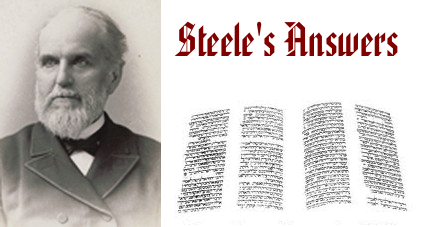ANSWER: Like us he was free to stand or to fall, otherwise his obedience was necessary, mechanical and no more praiseworthy than a good clock is for being an accurate timekeeper. None but a free agent can be an example for a free agent. Yet there was in the divine mind a perfect certainty that Jesus would resist temptation foreseen by infinite wisdom and foreknowledge. There are two kinds of sins, one of the flesh — sins finding expression through the body, and sins of the spirit, which are mental and independent of the body, such as pride, selfishness, unbelief, malice, etc. In respect to both of these classes Jesus was tempted beginning with the selfish use of his supernaturalism to satisfy his hunger, and ending with the suggestion to avoid the cross and become king immediately by a stroke of state. The fact that there was in him no hereditary bent toward sin makes a seeming difference between him and us. But it may be that the influence of the Holy Spirit more than compensates us. Jesus stood alone as a man assaulted by Satan unaided by his own personal divinity, and by the Holy Pentecostal Spirit, who was not yet given. Delitzsch insists that the words "without sin" limits the phrase, "in all points like as we are," except an innate proneness to be led astray. In so doing the writer of this epistle "brings out more clearly the unlimited similarity in all other respects." The tempter found him without sin and left him sinless.
— Steele's Answers, pp. 226, 227.

No comments:
Post a Comment